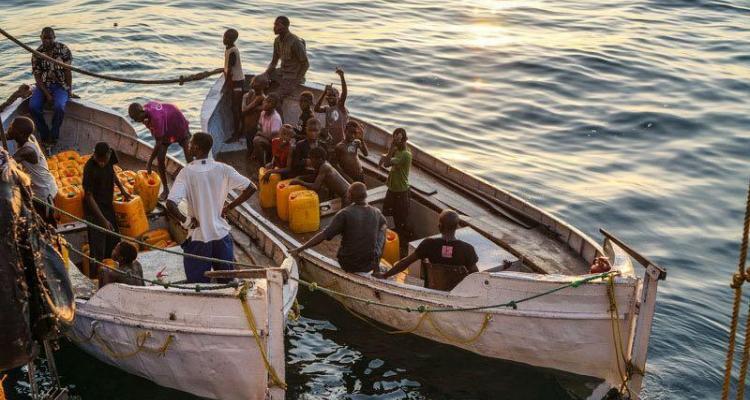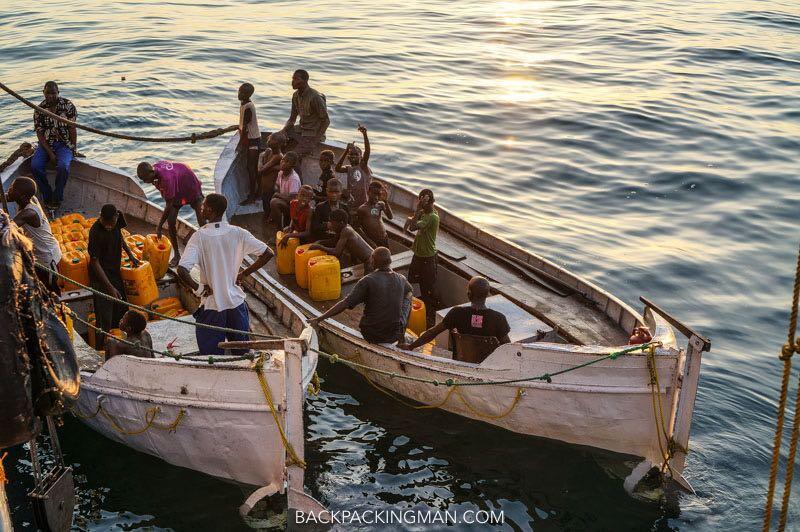
Latest statistics showing declining water levels in Lake Malawi are a cause for worry, an Environmental Rights Activist has said.
Recent findings by the Electricity Generation Company (EGENCO) have revealed that water levels in Lake Malawi have been declining over the years.
At the beginning of every year, water levels in the lake have been at 474.5 meters above sea level but it was not the case this year. This year in January, it was 473.0 meters above the sea level.

EGENCO revealed this earlier this year at a press briefing in Blantyre when they were outlining measures to end power outages in Malawi and named the declining water levels on the water body as one of the setbacks.
But these statistics are worrisome says Godfrey Mfiti – Executive Director for the Institute of Sustainable Development.
He says the time to work together to address the matter at hand is now to save the lake which depends on forest reserves and natural vegetation.
“It is high time the country focused on ensuring how efficient and effective the mountain resources will be used in the next few years,” he says.
But what threat does such trends pose to the nation? Mfiti argues that while the issue of power generation is placed as one of the effects, the Lake Malawi Water Supply Project in Lilongwe, Salima and Dedza districts could also be hugely affected.
The analyst says due to failure to replenish forest reserves and natural vegetation, water bodies have been dying citing Lake Chiuta.
“Mountains provide water catchment areas through forest reserves and National Parks located in some mountains. Mountains play an important role in regulating the water supply to streams, rivers and lakes, and the flow of streams, with reduced siltation and flooding, and in maintaining the productivity of the water bodies in Malawi. Mulanje mountain forest reserve and Zomba mountain forest reserve have great influence on water flowing into Ruo River and Lake Chirwa,” he says.

Mfiti adds: “In recent times a shift towards Mulanje Mountain as a source of drinking water by Blantyre Water Board in the southern region has taken shape. In the Eastern Region the Mulunguzi dam in Zomba rightly settled on top of the Zomba Mountain directly supported by the mountain’s ecosystem. Similarly the central and northern region water boards also tap their water in Lake Malawi which is also supported by the mountain’s ecosystem. It should be envisioned by policy makers in Malawi that mountains are the future for clean and safe drinking water.”
By extension, Mfiti says there is a need for Malawi to develop a national strategic policy on sustainable mountain development to see to it that the catchment area for Lake Malawi is protected.
“Malawi government needs an independent authority to look at ways of protecting Lake Malawi. Just like all other lakes in the African Great Lakes Region have independent bodies that promote conservation and development of their lakes,” added Mfiti.
In the recent past, Malawi has been facing incessant power failures and according to EGENCO, the declining water levels in Lake Malawi has been one of the core reasons.
EGENCO which foresees power supply in Malawi has since named alternative power sources and adding capacity of electricity production to halt incessant power outages in Malawi.
These include Power Generation projects, upping the generation capacity in stations like Wovwe and improving machinery and dredging.














